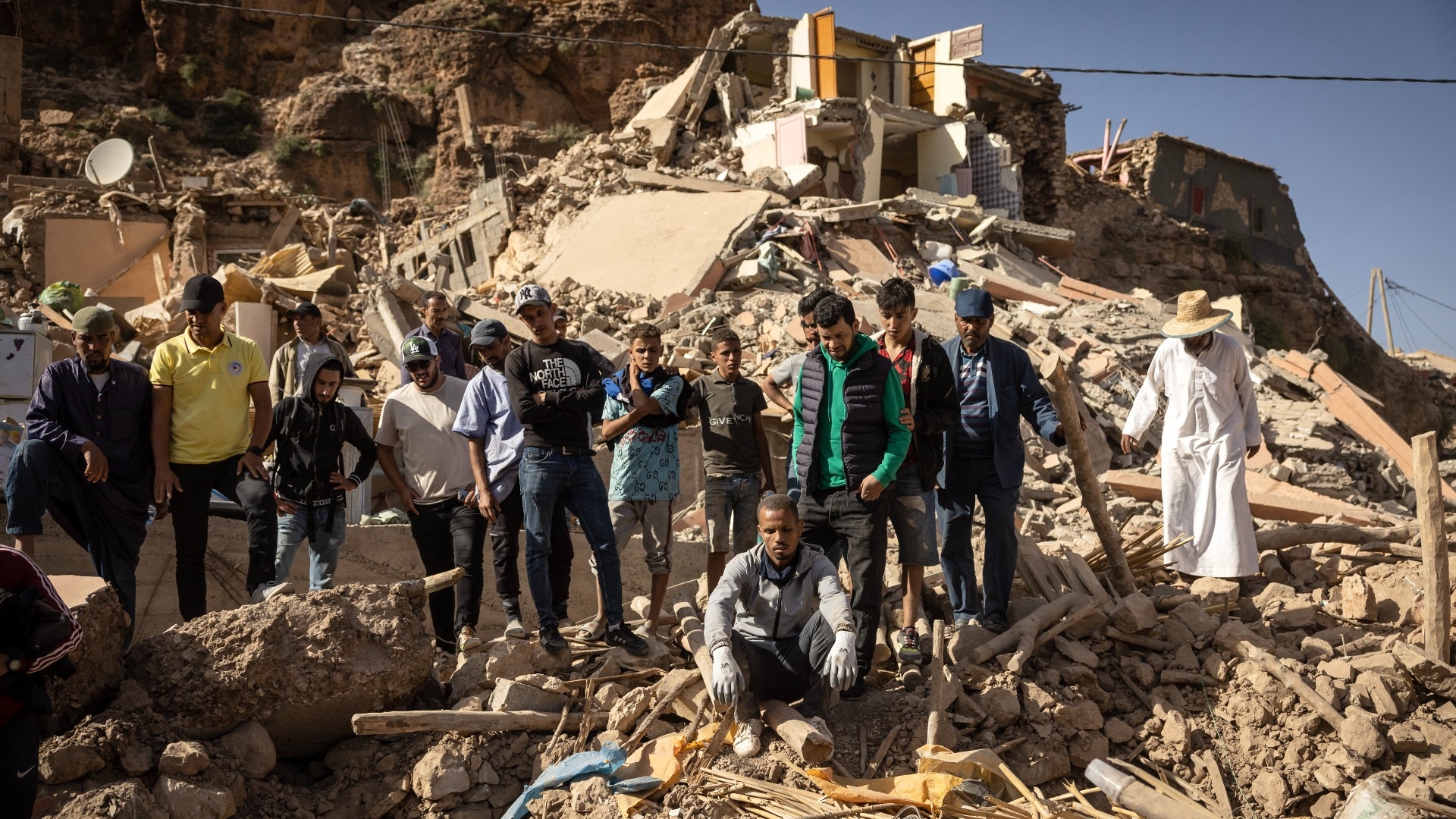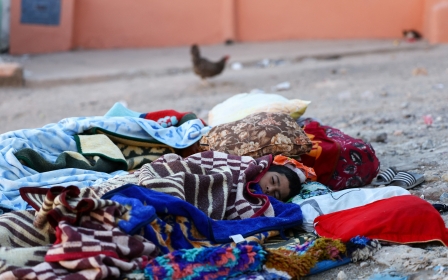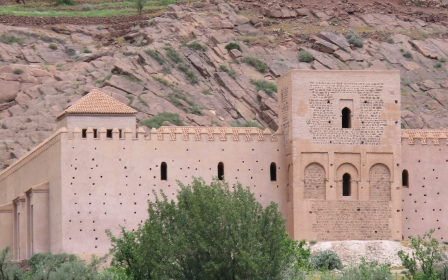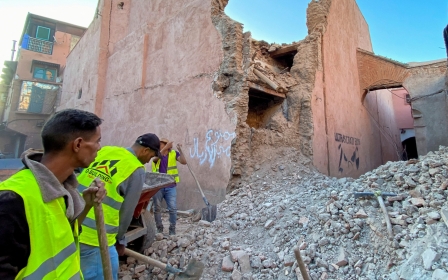'Wish we were there to help': Moroccans in US leap to assist earthquake relief

Moroccans in the United States are rapidly mobilising to send aid back home, following this weekend's devastating 6.8 magnitude earthquake that has left large swathes of rural Morocco in ruin.
The earthquake has left at least 2,100 people dead and thousands of others injured or missing under the rubble of buildings in remote parts of the country, with the epicentre around 70km from the city of Marrakech.
With an estimated 300,ooo people said to be impacted by the earthquake, it has been described as the most tumultuous quake to hit the country in 63 years.
In the United States, Moroccans are hooked to their phones, watching helplessly as a drip feed of horror arrives with each passing hour.
With an estimated 128,000 Moroccans living in the US, everyone seems to know someone back home impacted by the earthquake.
New MEE newsletter: Jerusalem Dispatch
Sign up to get the latest insights and analysis on Israel-Palestine, alongside Turkey Unpacked and other MEE newsletters
In Indiana, one Moroccan family found out that their neighbours back in Morocco, people they had grown up with, lost 10 members of their family.
Another family in New Jersey received news that a friend back home lost 20 members of his own family, with others still unaccounted for.
"We wish we were there to help out physically," said Laila Mounia Alaoui, whose family back in Morocco survived the quake but had their home partially damaged, forcing them to sleep in the open since Friday evening. Alaoui is the principal of Al Noor Weekend School in Fisher, Indiana.
"But what we can do [right now] is provide some material things to help - like tents and other basics," Alaoui told MEE.
Alaoiu said she is buoyed by the reaction of the local Muslim community who have already come forward to assist.
Community fundraisers
Later this week, Al Huda Foundation, the parent organisation that runs the weekend school, will hold a formal fundraiser facilitating community donations.
Other families will sell Moroccan cuisine, the proceeds of which will be sent towards the relief efforts.
Yassine Elkaryani, president of the Moroccan American Recreational and Organizational Council, said the Moroccan community is mobilising in New York and New Jersey, while trying to rise above their anguish.
He told MEE his organisation was inundated with requests to raise funds to help people back home.
"Our first task was to find organisations that are equipped and approved to collect money in the United States and transfer it to partner organisations in Morocco - because Morocco is a very strict country when it comes to things like this.
"The effort right now is to send money. The needs right now are tents, food, water. We are really talking about the basics," Elkaryani said.
In Los Angeles, several Moroccan Americans, like celebrity chef Yasmina Ksikes, began organising aid over social media, too.
The Moroccan American Association of California, too, held several emergency meetings with other organisations to help build a robust relief effort.
But Elkaryani cautioned well-wishers to make sure they do their due diligence before donating.
"There is a lot of chaos in terms of the GoFundMes and the fundraisers. Donors are urged to donate, but they are urged to ask questions about how equipped those organisations who are receiving the money to send the money to its final destination, which are the victims," he added.
On Sunday, the Moroccan government announced a bank account where people can directly deposit donations.
The next 24 hours
According to humanitarian organisations, the next 24 hours will be crucial in terms of search and rescue efforts.
“We know what to expect. There’s the need for the dignified management of dead bodies. There’s the need to provide people with safe water. We need to make sure we don’t have a disaster within a disaster. Hygiene really needs to be maintained,” Caroline Holt, director of climate and crisis for the International Federation of Red Cross and Red Crescent Societies, said in a statement.
Halil Demir, from the Zakat Foundation of America based in Chicago, said they had already dispatched a team to Morocco to assess the level of damage and humanitarian aid needed in the aftermath of Friday's quake.
Demir's team was dispatched from Istanbul where they had been working over the past seven months coordinating relief efforts in the aftermath of the earthquake in Turkey earlier this year. Demir said his team observed that coordinating relief efforts in the remote, mountainous areas of Morocco was proving to be very difficult.
"This is a rescue phase and in some days we hope we can help with the recovery," Demir told MEE.
A Middle East Eye report on Monday revealed that the deployment of international search and rescue teams in Morocco following Friday's earthquake was not being coordinated through the United Nations' disaster response system.
The international response to major disasters and humanitarian emergencies is usually organised through the UN’s Office for the Coordination of Humanitarian Affairs.
Meanwhile, the messages and calls for help continue unabated.
Abdullah, a restaurant worker in New York, told MEE that his friends back home were updating him about the ongoing crisis and the slow movement of aid and government assistance.
"People are still underground. Some of them have died and others are hurt and there is no food or water," Abdullah, who declined to provide a last name, said.
Alaoui, the school principal, said that the only glimpse of hope she has seen over the past few days has come from the care shown by people in response to the disaster.
"We have seen many Moroccans throughout the country donating food, donating money, driving their own vehicles to the sites. They didn't wait for the government to move. They motivated others to donate blood. Everyone has this feeling they wish to be there, to help out."
"Perhaps this is the light at the end of the tunnel - though we are still in the middle of the tunnel - but there is some light," Alaoui said.
Middle East Eye delivers independent and unrivalled coverage and analysis of the Middle East, North Africa and beyond. To learn more about republishing this content and the associated fees, please fill out this form. More about MEE can be found here.




